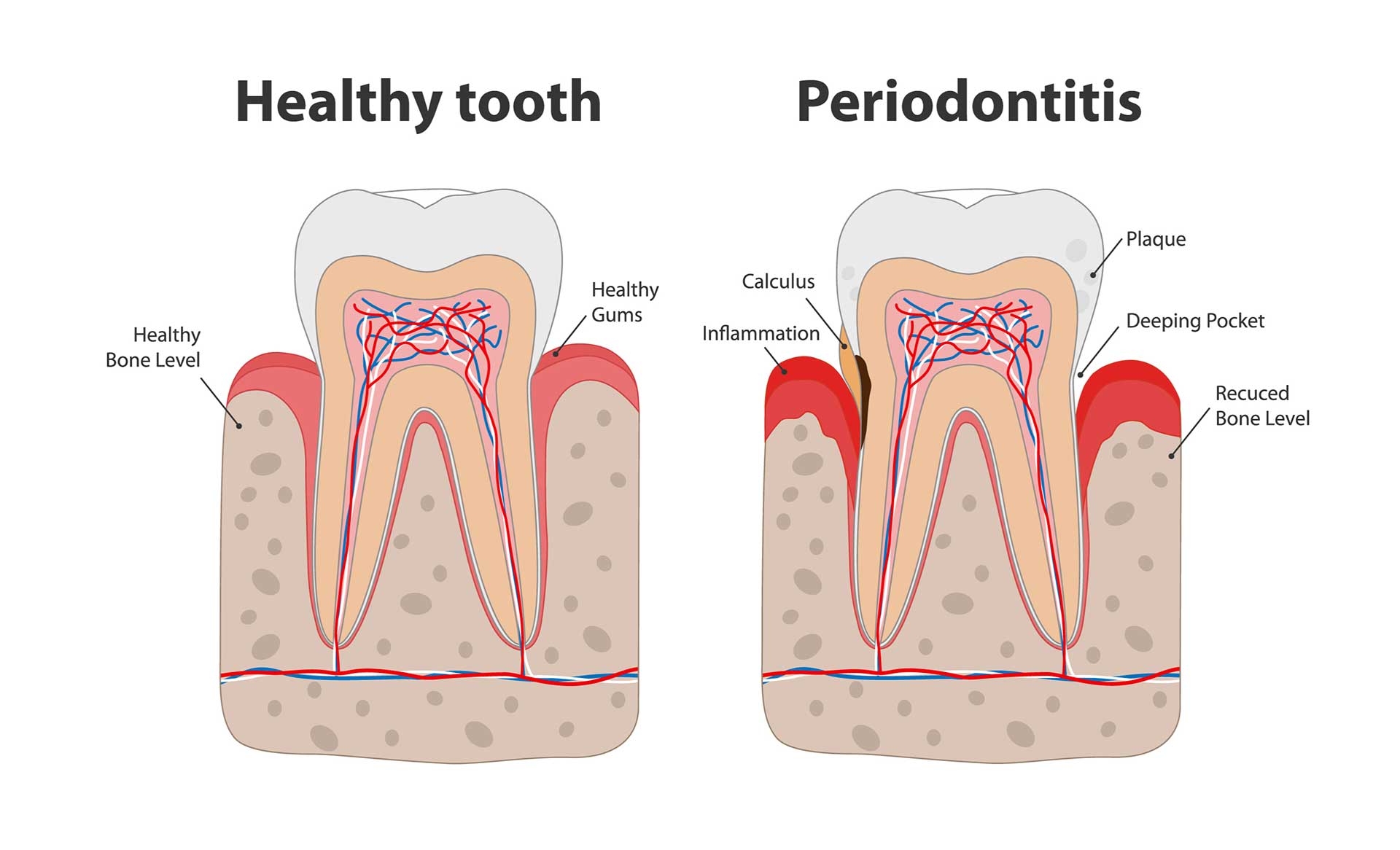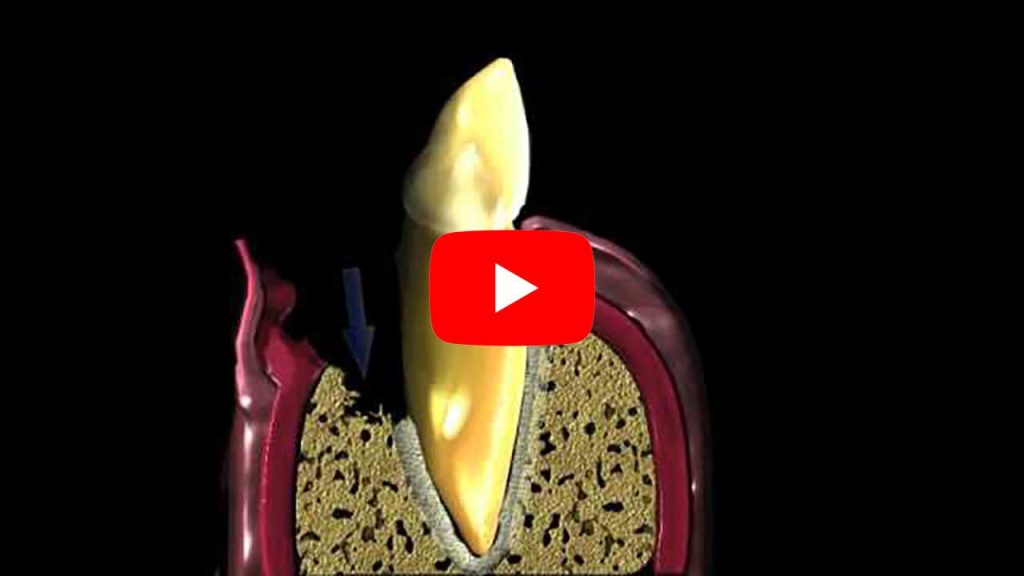Pocket reduction surgery and osseous surgery
Like a turtleneck sweater, your gums should cover and protect your teeth’ roots.
So, when do you need osseous surgery and pocket reduction surgery?
To answer that question, let’s briefly investigate what happens when tartar accumulates below your gum line.

As tartar builds up, the bacteria with it produce biochemicals that cause your gums to pull back. Gaps, also called pockets, form between gums and your teeth.
A gap offers a space where more bacteria can grow, further worsening your dental health. These bacteria’s biochemical productions damage your gums and bone.
Over time, your pockets will become deeper, hosting greater numbers of bacteria, creating a vicious cycle. And the consequences can be dire…
…. this process may cause severe damage to:
- your gums
- your teeth, leading to tooth loss
- the bone and ligaments surrounding and supporting your teeth
Thus, it should not surprise you that taking quick action is very important if you suffer from periodontitis.
At this stage, daily oral hygiene improvements and simple professional care, such as routine cleaning, will not suffice.
Have you responded well to deep dental cleaning, scaling and root planing?
If not, and if your pockets are 5 mm or deeper, you will need:
- pocket reduction surgery
- and osseous surgery.
Dr. M. Reshad, our periodontist, will:
- fold back your gums.
- Thoroughly remove and clean the tartar on your exposed dental roots. This work prevents bacteria from easily attaching to and growing there again.
- Smooth and reshape the bone in the pockets. This will avoid tartar from accumulating and attaching to previously roughened root surfaces. And that is because your bone will now be smooth once again. It will also allow your gums to reattach more easily to the newly healthy bone.
- Secure the gums in place.

In spite of this, periodontal disease may occur again. It is called a silent disease since it is mostly asymptomatic, despite its destructive consequences. This further highlights the importance of:
- regular biannual professional cleanings
- an effective daily personal hygiene regimen.
Depending on how severe your periodontal disease is, Dr. Reshad may not stop at pocket reduction surgery and osseous surgery.
Are you curious to learn what other treatments Dr. Reshad offers? If so, check our article entitled, Advanced periodontal disease: gum graft and gum disease surgery.
SUTTON PLACE DENTAL ASSOCIATES ON THE WEB






